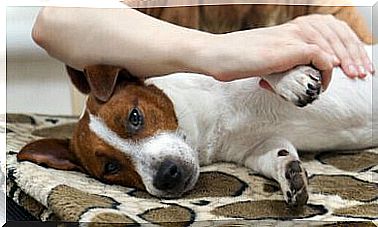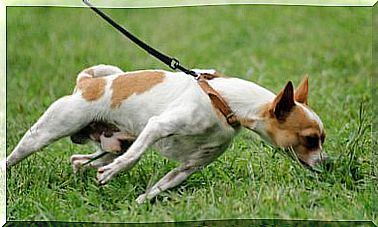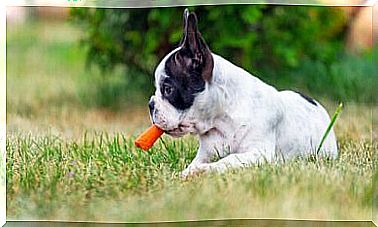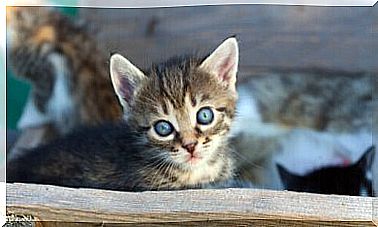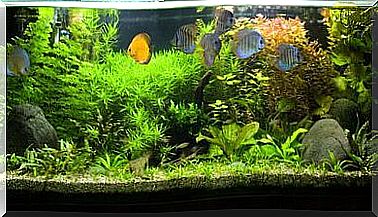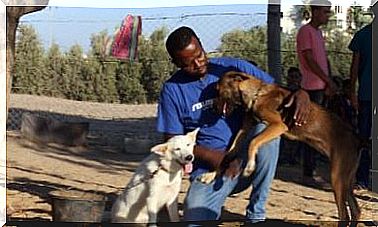Depression In Parrots: Causes, Symptoms And Treatment
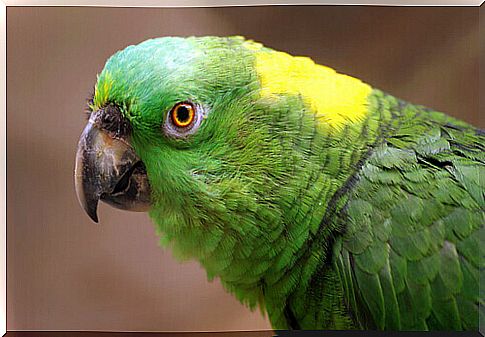
Animals also suffer from emotional stress. Birds are the most vulnerable psychologically speaking. Depression in parrots exists and is very common, although their owners ignore it.
The slightest change can be enough to generate considerable anxiety situations in a parrot. Sometimes, not knowing many things about this species of animal causes the owners to place them in difficult situations to bear.
There are many causes of this disease, counting the symptoms, and the treatments are quite limited.
A sad parrot: 3 causes
Parrots can suffer from separation anxiety, which classifies them as very nostalgic animals and who become attached to those around them. If their half dies or their master abandons them, they react with self-destruction. They stop eating. Removing them from their natural environment could be fatal.
The reasons for this suffering are not related only to attachment. Traumatic events that hit them suddenly could also make them feel bad. Having to take off suddenly, or just hearing a loud sound can be stressful. Fright alters their nervous system.
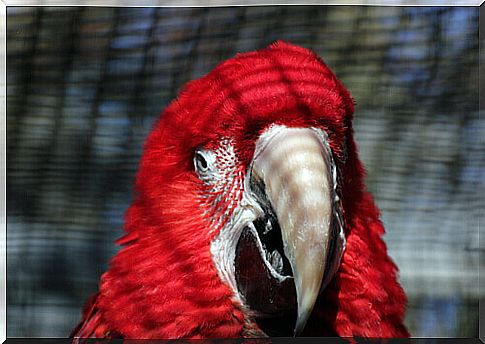
Other causes have to do with their interactions with the outside world. If they are in extremely cold environments, with sudden drafts or in very tight cages, they may get depressed and feel confined.
Symptoms of Depression
A simple flap of wings could indicate that our pet needs attention. We are talking about a state of mind that does not denote an advanced level of depression in parrots. But he has to alert the bosses.
Repeated senseless behaviors and lack of appetite are obvious signs that something is wrong. After that, they will convert into a forced fast. And that, in addition to disease, could result in death.
The most obvious symptom of an altered psyche in parrots or cockatoos is self-plumation. If they feel sad, these birds pluck their feathers on their own, which could be considered an act of self-flagellation. Some even become bald, leaving them unprotected in the face of climate change, making their situation even worse.
3 psychological realities that define parrots
Parrots are intelligent birds, and they have the ability to understand what is happening in the environment around them. In fact, some researchers estimate that this species can come to have an intelligence similar to that of a small child.
In addition, they are very loyal to their mate. Once two specimens are mated, they usually stick together until they die, even if they live in their natural habitat. Obviously, for parrots, fidelity and attachment are fundamental aspects for their survival and emotional tranquility.
All this is associated with their instincts and chemical composition. Today it is known that a parrot has a very fast metabolism. Quitting eating can cause irreparable damage in no time.
What to know before adopting a parrot?
The worst thing we could do to this species is to adopt a specimen at an advanced age. Many stores sell this type of bird in adulthood. When they are brought into a house, they become depressed.
However, if they are adopted by young people, they must be guaranteed a comfortable environment. Putting them in sufficiently spacious and ventilated cages would be ideal.
The most important thing is to pay attention to the parrot’s body language. The fact that he repeats words or sings all the time doesn’t always mean he’s happy.
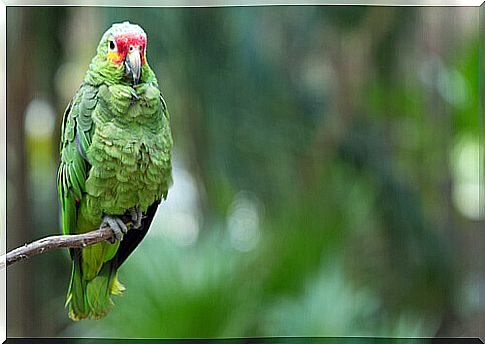
Treatment for depression in parrots
Basically, what you can do is create conditions for this animal to have positive and pleasant moods. Getting out of the cage will help him get distracted.
There is advice on the internet on the administration of tranquilizers such as Prozac to relieve depression in this type of bird. However, it is best to seek advice from a veterinarian.
Finally, the best way to prevent and treat depression in parrots is through love and communication.
